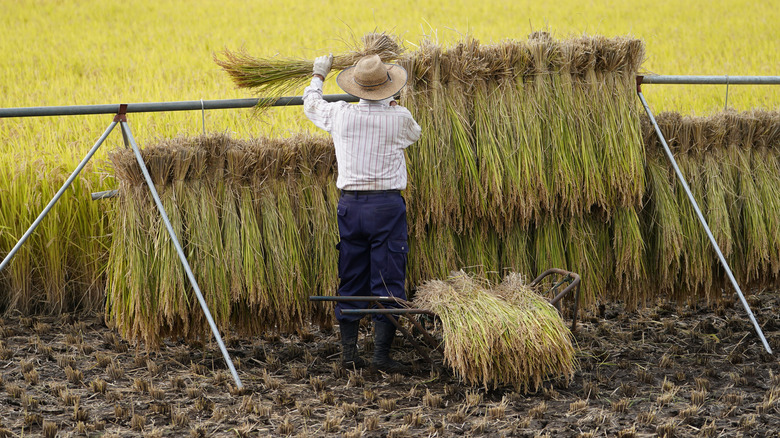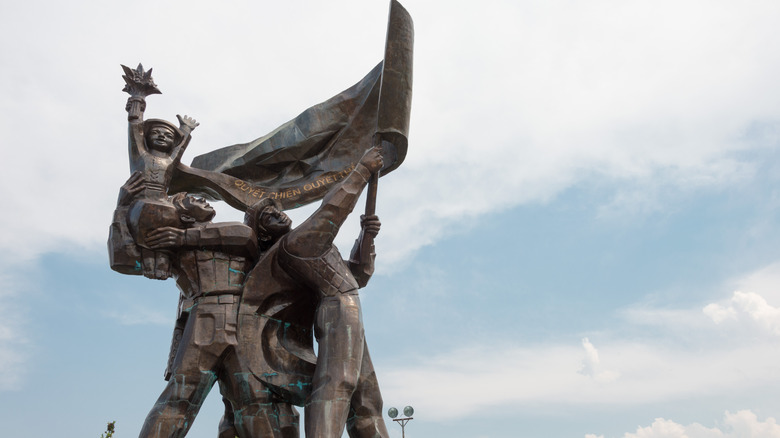How Rice Once Led To A War
A starving person will do anything for food, so it's no surprise that widespread famine will fester into war and violence as the desperate fight for the remaining scraps of food. When there's a scarcity of a staple crop, the odds of full-blown war are increased, which is exactly what happened in colonial Vietnam right in the midst of World War II (via Mental Floss).
Vietnam, part of French Indochina at the time, suffered greatly as the toll of the Second World War decimated their rice crops, which were allegedly stored for so long they were no longer edible. The French were much more focused on fighting the Japanese and did little to stem the famine that ensued, even though some regions actually had a surplus of rice; the French did not coordinate transport of the food to the hungry, purportedly leading to between 1 and 2 million deaths from starvation. Since rice was and still is the staple crop of the region, angry Vietnamese commoners turned to rebellion and fought for independence in the First Indochina War.
Both sides of WW2 caused the famine
The biggest tragedy of the famine was how preventable it was. According to Nobel Peace Center, not only were the French negligent of their colonies, both Axis and Allies contributed to the rice shortage. Japanese troops confiscated rice supplies, and Americans bombed railways and ships that prevented transportation of necessary food supplies to the starving north. Rice was so common in the south part of Vietnam that it was burned as a fuel source, while their northern neighbors starved to death.
The famine was used as a rallying cry for rebels and communists in the First Indochina War, and again in the Second Indochina War — better known as the Vietnam War — that followed. The war would again see the intentional destruction of rice crops as chemical agents, dangerous to humans and plants alike, were sprayed in Vietnam's jungles and rice fields. Throughout the middle of the 20th century, rice and war were heavily intertwined, at the cost of millions of lives.

